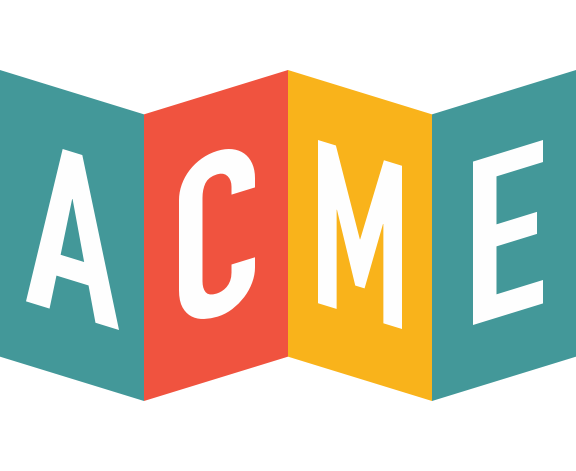
What Grant Writing Season Means For Your Organization
Nonprofits and cultural institutions, like zoos and museums, need several sources of funding in order to achieve their goals and keep their doors open. For many organizations, one of the best ways to achieve this funding is by seeking grants through grant writing.
Grant writing is the important process of applying to grants that are offered by government programs, businesses, donor foundations, local municipalities, and other community organizations.
While grant writing might seem tedious and scary, there are some tips and tricks that can help simplify the process and maximize your earnings. Below we’ll look at some of the current trends in grant writing and some best practices you can follow to make your grant season a success.
The current state of grants
While there are several government, foundation, and corporate grants that have been around for decades, like the Carnegie Foundation or Ford Foundation, you can widen your grant net by looking at trends and yearly-specific grants.
- Diversity, equity, and inclusion are becoming increasingly valued, and there are a number of grants related to diversity and inclusivity that are available to cultural institutions. If relevant to your cause, you can seek several diversity-related grants in 2022.
- There’s a movement throughout the development and fundraising world to put more trust in nonprofits and reduce grant-specific restrictions on how grant money is spent. This is great news for nonprofits because they can utilize funding more freely and achieve their unique goals. Organizations like the Trust-Based Philanthropy Project are leading the movement and can be excellent resources for nonprofits and other cultural institutions to meet their funding goals and maintain their freedom.
- One way to make your grant request more attractive is to demonstrate a long-term plan. Grants want to know that their funds will have a long-term impact, and being able to communicate and show a greater vision will help give you an edge in any grant-writing endeavor.
- When reaching out to grants, it’s important to show how previous grant money was used and the kind of success that you saw within that grant season. The best way to ensure that your organization utilizes its funding responsibly is to take on solvable problems. When you can demonstrate that you’ve reached an annual goal or made tangible impacts on your community, you’ll be far more attractive in gaining grants in the future.
- It’s important to understand that donor money is essentially grant money. This means you need to understand the members and donors that make up your community. With an advanced CRM, you can keep track of donors, understand their interests, and reach out to them with institutional efforts that they care about.
Understanding the current state of grants and the various grant trends will help you widen your net and have the best chance at achieving your fundraising goals. Below we’ll look at how you plan for a successful grant writing season.
Grant writing season success planning
Even with the most comprehensive list of grants available, you still need to apply to grants with a compelling narrative and convincing appeal. The below tips will help you put your best foot forward when reaching out to grants.
- The first thing you should do when applying for a new grant is to research your grant. Utilize a grant-finding database, and do as much research as you can to align with the grant and cater to its cause.
- Understand that not all grants will be a good fit for your organization. While applying to as many grants as possible is a good strategy, you don’t want to blindly apply to grants that are not a good fit with your organizational goals.
- Most grants require some kind of a statement or written proposal. If you’re not confident in your team’s capabilities to write a convincing statement, you might want to consider investing in a freelance writer to take on the task. Your proposal should be clearly written, easy to understand, and compellingly constructed.
- Similar to college applications or fellowships, you want to present your grant application as a narrative. This shouldn’t be difficult for most nonprofits and cultural institutions because your mission statement should already tell a convincing story, but you definitely don’t want to state a bunch of random facts or accolades.
- Make sure you have a long-term strategy. As we discussed in the previous section, grants want to know that their funding will have a long-term impact. You can create a 5-year impact plan and include it in your statement.
- It’s a good strategy to look at past winners to model after or find grants that align with your mission. Grants will often announce their previous winners, which is a great entry point into finding new grants or improving your own applications.
- It’s important to proofread and edit your proposal for typos, grammar errors, spelling mistakes, or awkward phrasing. While a few typos won’t make or break your entry, an application littered with mistakes could be overlooked by a grant committee.
By doing the research on grants, aligning your mission, modeling after previous winners, and planning appropriately, you can effectively write a grant application and increase your earnings.
Acme cares about grants
ACME understands how critical donations are to your institutions, which is why we’ve made it a top priority to enhance your donation functionality.
ACME can help you reach donors and increase the number of grants you receive by:
- Providing custom messages to potential donors
- Allowing for direct deep linking from your site or marketing emails
- Offering a streamlined flow for donation-only orders, which takes users directly to payment after selecting their donation amount
- Allowing your organization to define the appeal, fund, and campaign
Try the demo today to see how ACME can help you increase your fundraising and receive more grants.

